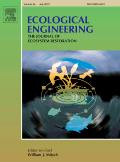
ECOLOGICAL ENGINEERING
Scope & Guideline
Fostering dialogue on the future of ecological engineering.
Introduction
Aims and Scopes
- Ecological Restoration Techniques:
Research on methods and approaches for restoring degraded ecosystems, including wetlands, forests, and urban areas. This includes innovative techniques such as bioremediation, phytoremediation, and the use of nature-based solutions. - Impact of Anthropogenic Activities:
Studies evaluating the effects of human activities, such as agriculture, urbanization, and industrialization, on ecosystems and biodiversity. This includes assessments of pollution, habitat loss, and climate change. - Sustainable Water Management:
Research on engineered solutions for water quality improvement and management, including the design and evaluation of constructed wetlands, bioretention systems, and stormwater management practices. - Biodiversity and Ecosystem Services:
Exploration of the relationships between biodiversity and ecosystem functions. This includes investigations into how ecological engineering can enhance ecosystem services such as carbon sequestration, nutrient cycling, and habitat provision. - Soil and Water Bioengineering:
Focus on using biological materials and processes in engineering practices to improve soil stability, prevent erosion, and enhance the ecological integrity of landscapes. - Climate Change Mitigation:
Studies aimed at understanding how ecological engineering can contribute to climate change adaptation and mitigation, particularly through carbon sequestration and enhancing ecosystem resilience.
Trending and Emerging
- Nature-Based Solutions (NbS):
Increasing focus on NbS as effective strategies for addressing environmental challenges such as flooding, pollution, and habitat loss. These solutions leverage natural processes and ecosystems to provide sustainable benefits. - Climate Resilience and Adaptation:
A rising trend in research addressing how ecological engineering can enhance the resilience of ecosystems to climate change impacts. This includes studies on adaptive management practices and restoration strategies that consider future climate scenarios. - Microbial and Soil Health Studies:
Emerging interest in the role of soil microbial communities in ecological restoration and their contributions to nutrient cycling and ecosystem health. Research is focusing on how to enhance microbial diversity and functionality in restored habitats. - Urban Ecology and Green Infrastructure:
Growing publications on integrating ecological principles into urban planning and development, particularly through green infrastructure initiatives. This includes the design and implementation of green roofs, urban wetlands, and biodiversity-friendly landscapes. - Ecosystem Service Valuation:
An increasing emphasis on quantifying and valuing ecosystem services provided by restored ecosystems, which aids in justifying and promoting ecological engineering projects to stakeholders and policymakers.
Declining or Waning
- Traditional Engineering Solutions:
There has been a noticeable decrease in publications focusing solely on conventional engineering approaches without ecological considerations. The journal is increasingly prioritizing integrative, nature-based solutions. - Exotic Species Utilization:
Research on the use of exotic species for restoration purposes has declined, likely due to growing awareness of the ecological risks associated with non-native species and a shift towards promoting native biodiversity. - Single-Species Focus Studies:
Papers concentrating on single species without considering broader ecological interactions and community dynamics are becoming less common. The trend is shifting towards studies that encompass community-level responses and interactions. - Short-Term Assessments:
There is a decline in studies that assess ecological engineering effectiveness over short time frames. The emphasis is now more on long-term monitoring and evaluation of ecological outcomes.
Similar Journals

Research in Cold and Arid Regions
Unveiling sustainable solutions for a changing climate.Research in Cold and Arid Regions, published by KEAI PUBLISHING LTD, is a premier journal dedicated to advancing knowledge in the fields of Earth-Surface Processes, Environmental Engineering, and Geosciences. With an ISSN of 2097-1583 and an E-ISSN of 2949-7302, this journal aims to provide a platform for researchers, professionals, and students to share their findings on the complexities of cold and arid environments, which have increasing significance in the context of climate change. The journal holds a Q3 ranking in multiple categories for 2023, reflecting its commitment to quality scholarship, though it also sits at the cusp of enhancing its potential impact in Geotechnical Engineering and Engineering Geology. Open Access options allow for wider dissemination of research findings, ensuring that valuable insights are accessible to a global audience. Based in Beijing, China, the journal is strategically positioned to address the unique challenges faced by arid and cold regions worldwide, making it an essential resource for scholars and practitioners focused on sustainable solutions for environmental issues.
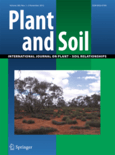
PLANT AND SOIL
Cultivating insights for sustainable agriculture and soil health.PLANT AND SOIL is a prestigious academic journal that has been at the forefront of plant and soil research since its inception in 1948. Published by SPRINGER in the Netherlands, this journal has carved a niche as a leading source of high-quality, peer-reviewed articles, which are essential for researchers, professionals, and students in the fields of Plant Science and Soil Science. With an impressive impact factor placing it in the Q1 category of both disciplines, it ranks 50th in the field of Plant Science and 24th in Soil Science, highlighting its influence in the scientific community. Although not available as open access, the journal provides a wealth of knowledge and insights into the interactions between plants and soils, exploring critical topics such as soil health, crop productivity, and sustainable agriculture practices. Researchers who wish to contribute to this vital area of study through their empirical findings will find PLANT AND SOIL to be an invaluable platform for disseminating their work and connecting with a network of leading scholars committed to advancing our understanding of these essential ecosystems.
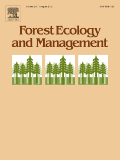
FOREST ECOLOGY AND MANAGEMENT
Transforming Insights into Action for Forest HealthFOREST ECOLOGY AND MANAGEMENT is a premier peer-reviewed journal dedicated to the integral study of forest ecosystems and their management, published by Elsevier in the Netherlands. With an impactful presence in the field, this journal boasts a prestigious Q1 ranking in multiple categories, including Forestry, Management, Monitoring, Policy and Law, and Nature and Landscape Conservation as of 2023. It addresses key issues relevant to sustainable forest practices, conservation strategies, and environmental monitoring, making it a vital resource for researchers, practitioners, and policymakers alike. The journal is indexed with an impressive Scopus rank, placing it among the top tier of titles in Agricultural and Biological Sciences and Environmental Science. While it does not offer Open Access options, its rigorous review process and high visibility make it essential for those seeking to stay abreast of the latest findings and trends in forest ecology and management. Published continuously since 1976, FOREST ECOLOGY AND MANAGEMENT aims to foster interdisciplinary collaboration and advance knowledge critical to the stewardship of forest resources in an ever-changing global landscape.

Contemporary Problems of Ecology
Uncovering Solutions to Contemporary Ecological IssuesContemporary Problems of Ecology, published by MAIK NAUKA/INTERPERIODICA/SPRINGER, is a premier journal committed to advancing research in the field of Environmental Science. Since its inception in 2008, this journal has carved a niche for itself in addressing the pressing ecological challenges of our times, catering to an audience comprising researchers, professionals, and students dedicated to the sustainability and environmental health of our planet. The journal is indexed in Scopus, with a current ranking of #165 out of 233 in the Environmental Science category, reflecting its contributions to the academic community, despite its position in the 29th percentile. With the latest quartile ranking placing it in Q3 for miscellaneous Environmental Science from 2023, the journal continues to be a vital resource for disseminating innovative research findings. Contemporary Problems of Ecology promotes open access scholarship and aims to foster a dialogue among experts, making it an essential platform for those looking to engage with contemporary ecological issues and solutions. The journal actively seeks to publish original research articles, reviews, and case studies that push the boundaries of our understanding of environmental systems.
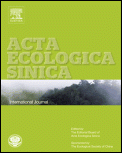
Acta Ecologica Sinica
Cultivating insights in ecology and environmental stewardship.Acta Ecologica Sinica, published by Elsevier, is a prominent journal in the field of ecology, with a strong focus on fostering understanding in ecological principles and their applications. Established in China, this journal holds an impressive Q2 categorization in both Ecology and Ecology, Evolution, Behavior and Systematics as of 2023, positioning it within the top tier of ecological research. With its Scopus rankings placing it in the 81st and 78th percentiles in relevant ecological domains, it serves as a vital platform for researchers and practitioners to disseminate findings that promote ecological sustainability. Although it operates under a traditional access model, its significant impact is underscored by its systematic convergence of key ecological inquiries across multiple years (2006-2008, 2014, 2017-2023). By engaging with the latest empirical studies, theoretical advancements, and methodological innovations, Acta Ecologica Sinica is indispensable for scholars dedicated to advancing ecological knowledge and addressing environmental challenges.

One Earth
Elevating Earth and Planetary Sciences to new heights.One Earth is a premier academic journal published by Cell Press, dedicated to advancing research in the fields of Earth and Planetary Sciences as well as Environmental Science. With an impactful presence in the academic community and an impressive ranking, One Earth has achieved Q1 status in both Earth and Planetary Sciences and Environmental Science, showing its commitment to the highest standards of scholarly excellence. Founded in 2019, this journal has quickly established itself as a leading platform for groundbreaking research, contributing to the global conversation on sustainability and environmental stewardship. With a distinguished Scopus rank placing it in the 99th percentile among Earth and Planetary Sciences and the 97th percentile in General Environmental Science categories, One Earth aims to disseminate cutting-edge findings and foster innovative approaches to address pressing global challenges. The journal is indexed with an ISSN of 2590-3330 and an E-ISSN of 2590-3322, supporting a broad audience of researchers, professionals, and students passionate about ecological integrity and planetary health.
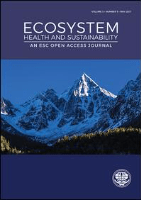
Ecosystem Health and Sustainability
Fostering global dialogue on ecosystem resilience.Ecosystem Health and Sustainability, published by the American Association for the Advancement of Science, is a premier journal in the field of ecological research and sustainability. Established as an Open Access journal since 2015, it has made significant strides in disseminating impactful research that addresses contemporary challenges in ecosystem health within a global context. With an impressive impact factor reflected in its consistent placement in the Q1 category across multiple fields—including Ecology, Evolution, Behavior and Systematics, as well as Management, Monitoring, Policy, and Law—this journal serves as a vital resource for researchers, professionals, and students alike. Based in the United Kingdom, the journal has shown notable performance in Scopus rankings, positioning itself within the top percentiles across various ecological specialties. As it continues its convergence through 2024, Ecosystem Health and Sustainability is committed to fostering the exchange of knowledge and promoting the integration of science and policy to advance sustainable practices globally.
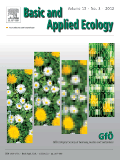
BASIC AND APPLIED ECOLOGY
Bridging theory and practice in the realm of ecology.BASIC AND APPLIED ECOLOGY, published by Elsevier GmbH in Germany, stands out as a premier journal in the field of ecology, evolution, behavior, and systematics. With its ISSN 1439-1791 and E-ISSN 1618-0089, the journal enjoys a distinguished reputation, evidenced by its classification in the Q1 category for Ecology in 2023 and impressively ranking #89 out of 721 in this domain according to Scopus. Since its inception in 2000, it has served as a vital platform for disseminating high-quality research that bridges theoretical insights and practical applications in ecology. Researchers, professionals, and students alike can look forward to the latest findings that not only foster a deeper understanding of ecological processes but also inform sustainable practices crucial for our environment. As the journal continues its journey through to 2024, it remains committed to advancing ecological knowledge and supporting innovative research in an ever-evolving field.
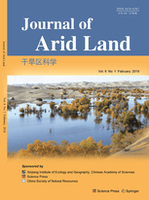
Journal of Arid Land
Advancing knowledge for a resilient future in arid lands.Journal of Arid Land, published by SPRINGER HEIDELBERG, is a pivotal platform dedicated to advancing knowledge in the fields of Earth-Surface Processes, Management, Monitoring, Policy and Law, and Water Science and Technology. With an ISSN of 1674-6767 and an E-ISSN of 2194-7783, this journal stands out as a prominent source of scholarly research focusing on the unique challenges and opportunities of arid and semi-arid environments, particularly relevant in the context of global climate change. As of 2023, it holds a commendable Q2 ranking in several critical categories, underscoring its impact in environmental science and related disciplines. The journal, which has been in publication since 2009 and is set to continue through 2024, provides unrestricted access to high-quality research that sheds light on sustainable practices and effective policies. With its focus on arid lands, the Journal of Arid Land plays an essential role in fostering interdisciplinary dialogue among researchers, practitioners, and policymakers striving to address the pressing issues faced by these ecosystems.

WETLANDS
Uncovering the Secrets of Nature's Water FiltersWETLANDS is a prestigious academic journal dedicated to advancing the understanding of wetland ecosystems, published by SPRINGER and based in the Netherlands. Established in 1981, this journal has consistently offered high-quality research on ecological dynamics, environmental chemistry, and broader environmental science topics, as indicated by its notable rankings in the 2023 category quartiles: Q2 in Ecology and Environmental Science (miscellaneous) and Q3 in Environmental Chemistry. The journal impacts the scientific community significantly, as reflected in its Scopus rankings, which place it within the top percentiles of its field. This makes WETLANDS an essential resource for researchers, professionals, and students aiming to stay at the forefront of wetland research and conservation efforts. With continual contributions from experts worldwide, it not only disseminates critical findings but also fosters collaboration and innovation within this vital area of environmental science.